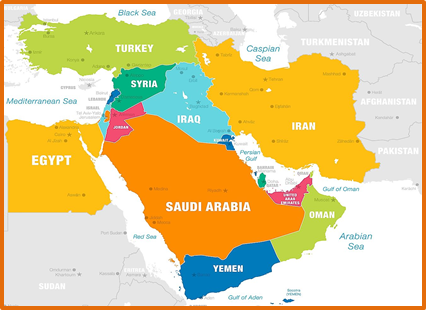

18th August 2022 (9 Topics)
Context
Turkey and Israel have agreed to restore full diplomatic relations and will return ambassadors to each other’s countries following a gradual improvement in relations.
About
- The two countries expelled ambassadors in 2018 over the killing of 60 Palestinians by Israeli forces during protests on the Gaza border against the opening of the U.S. Embassy in Jerusalem.
- Upgrading relations will contribute to deepening ties between the two peoples, expanding economic, trade, and cultural ties, and strengthening regional stability.
Important Points:
- Abraham Accords:
- The Israel–UAE normalization agreement is officially called the Abraham Accords Peace Agreement.
- It was initially agreed to in a joint statement by the United States, Israel and the United Arab Emirates (UAE) in August, 2020.
- The UAE thus became the third Arab country, after Egypt in 1979 and Jordan in 1994, to agree to formally normalize its relationship with Israel as well as the first Persian Gulf country to do so.
- Concurrently, Israel agreed to suspend plans for annexing parts of the West Bank. The agreement normalized what had long been informal but robust foreign relations between the two countries.
- India – Israel Relations:
- India has a long-standing and deep relation with Israel beginning with defence and has now incorporated technology, investment and trade.
- The strategic cooperation between the two countries began during the Sino-India War of 1962.
- India is Israel's third largest trade partner in Asia. Trade in diamonds constitutes close to 40% of bilateral trade.
- Also, Israel has been among the top four arms suppliers to India for almost two decades now (military sales are worth around USD 1 billion every year).
- Prime Minister Narendra Modi participated in the first-ever I2U2 Virtual Summit. I2U2 stands for India, Israel, the UAE, and the US.

India- Turkey Relations:
- The friendship treaty with Turkey that Jawaharlal Nehru signed in 1951 underlined India’s hopes for building a lasting partnership in the post-colonial era.
- It is not that there were no major Indian efforts after Nehru.
- Two strong prime ministers, Rajiv Gandhi and Atal Bihari Vajpayee, tried to end the stalemate in relations with Turkey, but did not succeed.
- Challenges:
- Turkey’s growing role in Afghanistan opens a more difficult phase in relations between Delhi and Ankara.
- India’s opposition to alliances and Turkey’s alignments reflected divergent international orientations of Delhi and Ankara after the Second World War.
- And Turkey’s deepening bilateral military-security cooperation with Pakistan made it even harder for Delhi to take a positive view of Ankara.
- Turkey and Pakistan were part of the Central Treaty Organization (CENTO) that was set up in 1955 by the British.
- Although CENTO eventually wound up in 1979, Turkey and Pakistan remained close partners in a number of regional organizations and international forums like the Organization of Islamic Cooperation.


